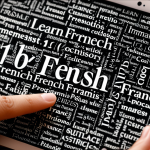Introduction to Historical Reenactments
Historical reenactments capture the essence of UK history by bringing past events to life. They serve as dynamic platforms for educating people about the nation’s rich cultural heritage. Whether it’s the reenactment of medieval fairs, pivotal battles, or royal ceremonies, these events provide immersive experiences that transcend conventional learning methods.
The audience for historical reenactments is diverse, comprising history enthusiasts, families, school groups, and tourists eager to connect with history in an engaging way. Participants, known as reenactors, form a close-knit community dedicated to preserving authenticity. They invest time and resources into replicating historical details as accurately as possible.
Key elements defining a reenactment event include authentic costumes, period-appropriate gear, and meticulously researched scripts. Reenactors often engage in detailed role-play, ensuring the narrative remains true to historical accounts. Community camps, period-specific entertainment, and traditional crafts further enrich the experience, providing spectators a unique glimpse into life as it once was. Through participatory storytelling and vibrant displays, historical reenactments make the past both accessible and entertaining for today’s audiences.
Preparing for Your First Reenactment
Venturing into the world of historical reenactments can be an enriching experience, especially for a first-time participant. Preparation is key to ensure you make the most out of this journey. Start by familiarising yourself with the specific event you’re attending and understand the period it represents. This includes learning about the historical context, which will enhance your engagement and performance.
In the same genre : Effortless Enjoyment: Insider Tips for the Ultimate Edinburgh Military Tattoo Experience
Gear preparation is another essential aspect. As you dive into this world, acquiring or crafting costumes that reflect historical accuracy is paramount. Many newcomers prefer bespoke services from local artisans known for their authentic replicas. Alternatively, exploring vintage shops or flea markets can sometimes yield hidden treasures that might suit your needs.
Understanding reenactment etiquette ensures smooth integration into the community. This includes adhering to event rules, respecting fellow participants, and engaging with the audience knowledgeably. Remember, the integrity of the reenactment depends not just on authenticity but also on the camaraderie among reenactors. Joining online forums or attending workshops can provide valuable insights and practical tips. Each reenactment is a unique opportunity to immerse yourself in UK history and contribute to its vivid storytelling.
Key Events in the UK Reenactment Calendar
The UK events calendar offers a rich tapestry of historical festivals that showcase the country’s diverse history throughout the year. These reenactment events, woven into the very fabric of cultural heritage, provide vivid re-creations of historical periods and significant moments. From beloved major annual gatherings to smaller, spirited regional enactments, there’s something to capture the imagination of every history enthusiast.
Major Annual Events
One of the most prominent events is the Battle of Hastings reenactment, drawing multitudes keen on experiencing medieval warfare. The annual Tewkesbury Medieval Festival is another highlight, renowned for its grand scale and historical accuracy. These events bring people from all corners of the UK, offering a gripping glimpse into past battles.
Notable Regional Reenactments
Across various regions of the UK, local events celebrate tales significant to their locales. For instance, the Jorvik Viking Festival in York transports visitors back to Viking times with vibrantly detailed reenactments and interactive experiences. Such regional events often emphasize distinct aspects of history, enriching the national narrative.
Themed Events and Festivals
Themed festivals focusing on specific historical eras, like the Victorian Festival, provide unique insights and entertainment. These themed gatherings often include period-specific activities and crafts, ensuring an immersive experience that educates and entertains.
Resources for Gear and Costumes
Delving into the world of historical reenactments demands authentic costumes and gear to truly bring UK history back to life. Luckily, several resources can guide you in assembling a credible ensemble. Costume resources are pivotal for anyone starting on this journey. To find authentic costumes and accessories, explore local gear suppliers or online retailers specializing in historical attire. These suppliers often provide replicas that adhere to period-specific details, ensuring you maintain authenticity.
For those embarking on a creative path, crafting costumes offers a rewarding experience. DIY costume creation not only saves money but also adds a personal touch. Resources like crafting tutorials and workshops can offer guidance on creating period-accurate pieces. Consider utilizing local craft resources, where artisans are skilled in historical sewing techniques and materials.
When customizing your gear, pay attention to details such as fabric type, dyes, and patterns, which can affect the authenticity of your costume. Whether purchasing or crafting, investing in quality pieces will enhance your reenactment experience, marrying cultural heritage with vibrant storytelling.
Understanding Historical Context
In the realm of historical reenactments, historical accuracy plays a pivotal role in immersing participants and spectators alike into the heart of the events. A reenactment’s success largely hinges on accurately depicting the rich mosaic of UK history, thus offering a profound sense of historical education. Understanding the context of events depicted, from significant battles to daily life, enriches the experience for both reenactors and audiences.
Key historical events frequently highlighted in reenactments include monumental battles like the Battle of Hastings and the English Civil War skirmishes. Each depiction aims to be as faithful as possible, often involving rigorous research and expert consultation, to ensure scenes unfold as they might have centuries ago. This dedication fosters a deep connection with the past, allowing participants to feel the pulse of history.
For enthusiasts keen on enhancing their knowledge, several resources offer insights into the history embodied in reenactments. Historical texts, documentaries, and archives provide invaluable information, while museums and libraries often host exhibits tailored to these periods. Engaging with these resources deepens understanding, elevating one’s appreciation for cultural heritage.
Insights from Experienced Reenactors
Participating in historical reenactments involves much more than the recreation of historical events; it is an extension of the cultural heritage that excites UK history enthusiasts. Gleaning wisdom from seasoned reenactors adds depth to this unique experience.
Advice from Veterans
Veterans advise first-year participants to immerse themselves in research. They emphasise the importance of understanding the historical context to enhance performance and engagement. Delving into historical texts, documentaries, and museum archives is a solid starting point, ensuring accuracy and depth in your portrayal.
Personal Stories and Experiences
Experienced reenactors often share memorable moments, such as stepping onto the field and feeling the weight of history. Many recall the camaraderie built over time, the shared laughter, and the collective mission of keeping history alive. Such stories underline the emotional and educational rewards tied to participation.
Common Challenges Faced
Newcomers often grapple with gear preparation and understanding period-specific protocols. Seasoned reenactors suggest seeking guidance through workshops and forums where practical tips are shared, such as costume crafting and proper event conduct. Their experiences reveal that persistence and community support are key to overcoming these hurdles, making the journey uniquely fruitful.
Finding Local Groups and Societies
Joining local reenactment groups or historical societies can elevate your engagement in historical reenactments. These groups offer a network of like-minded individuals committed to preserving and celebrating UK history. Engaging with them can provide support, resources, and camaraderie, enhancing your overall experience.
Locating Groups: To find reenactment groups near you, attending local events is a great start. Here, you can connect with members and gather information firsthand. Additionally, online directories and social media platforms dedicated to historical reenactments are invaluable tools. They often list active groups and societies based on cultural heritage interests.
Benefits of Membership: By joining a local group, you’ll gain access to specialized training, workshops, and events that enhance your reenactment skills. Members often share practical tips, aiding in costume and gear preparation. This collaboration ensures you’re well-informed and prepared for participation.
Supporting Historical Societies: Many societies focus on specific historical periods or themes, providing a depth of knowledge and resources. They often host events and lectures, offering deeper insights into the historical context depicted in reenactments. Engaging with these societies fosters a comprehensive appreciation for the historical narratives brought to life.






